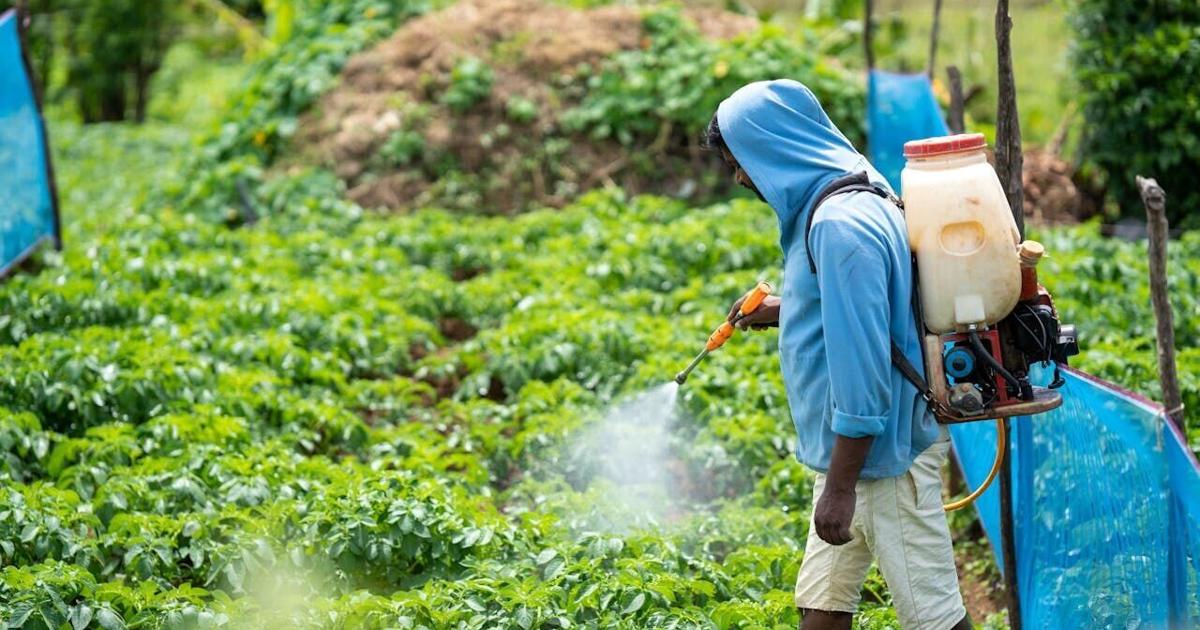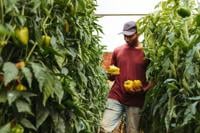(Photo by Dinuka Gunawardana via Pexels)
By Stephen Beech
Eating some fruits and vegetables can increase levels of harmful pesticides in the body, suggests a new study.
Pesticides have been previously linked to cancer, reproductive harm, hormone disruption and neurotoxicity in children.
Residues of the chemicals are often detected on produce, creating exposure concerns for consumers.
Scientists from the Environmental Working Group (EWG) in the United States say the findings of the new study provide a foundation for future research into how exposure to pesticides through what we eat might affect human health over time.
Study lead author Dr. Alexis Temkin, vice president for science at the Washington D.C.-based EWG, said: “The findings reinforce that what we eat directly affects the level of pesticides in our bodies.
“Eating produce is essential to a healthy diet, but it can also increase exposure to pesticides.”
engin akyurt
Participants who consumed more fruits and vegetables with higher levels of pesticide residues – such as strawberries, spinach and bell peppers – had “significantly” higher levels of pesticides in their urine compared to those who ate mostly produce with lower levels of pesticide residue.
The researchers say their findings, published in the International Journal of Hygiene and Environmental Health, highlight how diet is a driver of pesticide exposure.
Dr. Temkin said: “This study builds on previous work showing that certain fruits and vegetables are a major route of pesticide exposure for millions of Americans.
“Young children and pregnant people are particularly susceptible to the harms from exposure.”
EWG scientists first collected Department of Agriculture data on pesticide residues in produce from 2013 to 2018.
They combined those figures with dietary questionnaire responses and urine biomonitoring information from 1,837 participants.
The team created a “dietary pesticide exposure score” to estimate people’s exposure based on the fruits and vegetables they ate, and pesticide levels on that produce.
(Photo by Jonathan Borba via Pexels)
Pesticide amounts on produce were determined by how often and how much of each chemical was detected. The concentration and toxicity of each pesticide were also factored in,
Scientists then compared the exposure scores to 15 pesticide “biomarkers” – or indicators – in participants’ urine for three major classes: organophosphates, pyrethroids and neonicotinoids.
The results revealed a “clear link” between the specific produce people consumed and the levels of those pesticides that were detected in their urine, varying based on what they ate and the pesticides on those fruits and vegetables.
The study also confirmed that people are exposed to several pesticides at a time.
Fruits and vegetables had measurable residues of 178 unique pesticides, but only 42 of those chemicals matched biomarkers in the urine data.
But the relationship between produce consumption and pesticide levels in the body was only evident when potatoes were excluded from the analysis.
The researchers said potato consumption obscured the study’s findings, possibly because people eat potatoes in a variety of ways, making it more difficult to accurately estimate pesticide exposure from them.
James Baltz
They said the findings show that everyday food choices can also drive significant pesticide exposure in the general population.
The team says “serious questions” remain about whether current pesticide safety regulations set by the Environmental Protection Agency (EPA) sufficiently protect public health.
The EPA sets limits for individual pesticides, but doesn’t account for cumulative exposure from mixtures of residues regularly detected on produce samples
The research team suggests that their methodology for estimating pesticide exposure from fruit and veggies could give regulators and other researchers a “powerful” tool to assess real-world exposures and better safeguard vulnerable people, particularly children and pregnant women.
EWG science analyst Varun Subramaniam said: “This study was only possible thanks to robust federal data, highlighting why strong public health agencies must remain a top priority for policymakers.”
He added: “The pesticide residue tests and CDC biomonitoring data represent the kind of essential research that only the government can provide – at a scale that no private sector or academic effort could match.”
EWG scientists urged people to eat plenty of fruit and veggies, whether grown conventionally or organically, despite the findings.
They said switching from conventional produce to organic, which cannot be grown using certain pesticides, has been shown to “dramatically” reduce pesticide biomarkers in the body within days.






